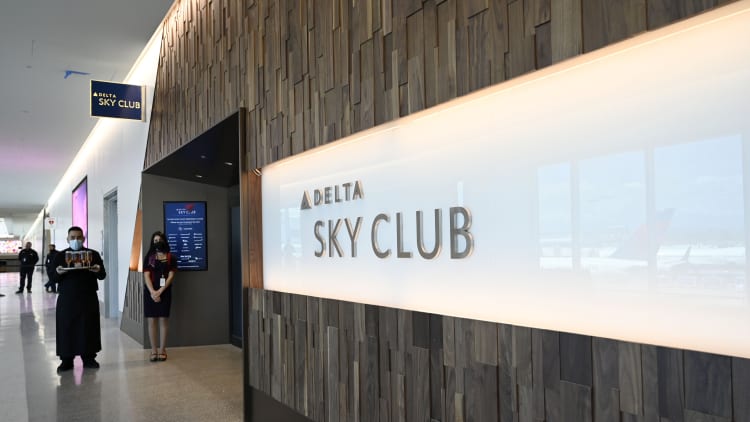Alaska Airlines planes.
Anatolia | Anatolia | Getty Images
Alaska Air Group It expects its profits to grow by $1 billion through 2027, and plans to ride the wave of demand for luxury travel to get there.
Alaska completed its $1.9 billion acquisition of Hawaiian Airlines in September, less than a year after signing the deal that gives it access to trans-Pacific routes and wide-body aircraft such as Boeing 787 Dreamliner and Airbus A330. The two brands operate separately.
Alaska said Tuesday that the airline will launch nonstop service between its hub at Seattle-Tacoma International Airport and Narita International Airport in Tokyo in May on Airbus A330-200 aircraft in Hawaii, and between Seattle and Incheon International Airport in Seoul, South Korea, in October. Tickets for the new Tokyo routes will go on sale on Tuesday, while fares for the latter route will go on sale in early 2025.
By 2030, Alaska plans to serve at least a dozen international destinations from Seattle using widebody aircraft, reconfiguring the carrier.
The carrier said on Tuesday that it had authorized a $1 billion stock buyback.
Alaska also expects pre-tax margins between 11% and 13% in 2027, and earnings per share to exceed $10. In October, the company estimated 2024 earnings at between $3.50 and $4.50 per share, including Hawaiian's results. It raised its fourth-quarter earnings estimate to 40 cents to 50 cents per share, up from a previous forecast of 20 cents to 40 cents.
Alaska stocks are up nearly 40% so far this year, more than the S&P 500's 27% gain through Monday's close. Shares of the airline rose nearly 16% in morning trading Tuesday after it released its long-term plans, hitting their highest level in more than three years.
Performance of Alaska Airlines and S&P 500
The carrier is also launching a new “premium” credit card with its partner Bank of Americathe latest co-branding deal designed to generate revenue from customers even when they're not flying.
Alaska is evaluating premium seat offerings across the fleet. Chief Financial Officer Shane Tackett told CNBC that the airline is looking to upgrade options specifically on its Airbus A330 aircraft in Hawaii, with more customers willing to pay for more space and comfort while traveling.
“When you look at the last two or three years, most of the revenue growth has been in those demand areas and I think that's likely to continue,” Tackett said. “We have a very good main cabin product…but there are more people who want the opportunity to get into premium economy or first class, and we need to meet that demand.”


More seats than ever in first class and premium economy are being purchased directly by customers rather than filled with free upgrades, Tackett said.
Seattle competitor Delta Airlineswhose 24% domestic passenger market share is second only to Alaska's 55% in Seattle, has also noticed this shift in demand for first-class seats. However, Delta has a larger share of international passengers than the airport.
Alaska said it plans to introduce a new lounge at San Diego International Airport. Delta said on Wednesday that it will open a Delta One lounge in Boston, its third after opening locations in New York and Los Angeles this year, dedicated to customers traveling in its higher cabin.
Meanwhile, Tackett told CNBC he expects more shifts in Alaska deliveries from Boeing.
A door plug on one of Boeing's nearly new 737 Max 9 planes exploded in Alaska in January after it left the manufacturer's factory without key pins in place. The looming disaster and increased quality checks have slowed Boeing's production and deliveries to airline customers like Alaska, united and Southwest.
“I think they're making progress,” Tackett said of Boeing, whose new CEO, Kelly Ortberg, has been tasked with stabilizing the planemaker. “It's not going to happen in a week. It's going to take time.” “We're in a position where we need to focus heavily on helping them understand that quality is the most important thing; it's more important to us than evaluation.”
Boeing is scheduled to report aircraft orders and deliveries for November at 11 a.m. Tuesday, a figure expected to be affected by the nearly two-month-old mechanics' strike that has halted production of most Boeing planes.
Boeing said on Tuesday it had resumed production of the 737 at its Renton, Washington, facility and said production at its Everett, Washington, plant would begin in the next few days.
